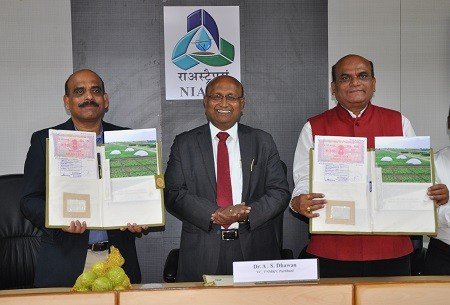Call for 2020 Biopesticide Awards nominations
The Biopesticide Summit 2020 And AgroSpectrum as a Strategic Media Partner is delighted to announce the Global Biopesticide Awards 2020 will be presented as part of its gala dinner on 19th May. Over 300 industry colleagues and guests are expected to attend and celebrate achievements in the field of bioprotection.
After the success of the first Biopesticide Summit and Awards in July 2019, the executive and steering committee of the World BioProtection Form (WBF) is delighted to announced that the 2nd Biopesticide Summit & Awards will take place on 19-20 May 2020, at the National Exhibition Centre (NEC), Birmingham, United Kingdom.
The Summit will connect industry and academia to create novel ideas and services, next generation formulations and delivery systems and provide support for accessing investments to commercialise novel products for horticulture, forestry and sport turf. The event brings together the international bioprotection community, including innovators, academics, commercial providers and end-users, to discuss and address the most pressing issues in crop protection and pest control. Testament to the quality of the programme, and the event’s unique approach to gathering all stakeholders across the entire biopesticides chain, the Summit is delighted this year to partner with leading media in the field, such as AgroPages, IHS Markit | Agrow, Agrospectrum and Planteria.
A key part of the two-day event is the Biopesticide Awards, which recognise and showcase the achievements of innovators working across the bioprotection industry. This year, eight awards will recognise outstanding achievements in the development of new bioprotection products (those launched within the past 2 years) and their impact in crop protection.
Award categories are:
|
|
Last year’s winners included leaders in innovation such as AgBio Systems, Bionema and the University of Birmingham, Ecoflora Agro, Ecolibrium Biologicals, Ecop-FP, Ecospray, Maxtim and Russell IPM.
Dr Minshad Ansari, Chairman of the Biopesticide Summit & Awards said: “The Awards and gala dinner offer a truly unique opportunity to recognise the achievements of the latest and most innovative new products on the market, the best research projects and the brightest start-ups that the global bioprotection industry has to offer.”
To enter the Global Biopesticide Awards 2020 or to discuss sponsorship of an award, please visit https://biopesticidesummit.com/awards-2019/awards-2020/ or email events@biopesticidesummit.com for an application form.
The deadline for nominations is 31st March 2020.
The Biopesticide Summit 2020 And AgroSpectrum as














